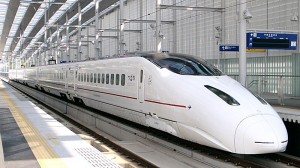Innovation, jobs and national champions.
 We noticed an editorial by Andy Grove in Bloomberg a few weeks ago titled How to Make an American Job Before It’s Too Late. Andy Grove, a founder of Intel, makes a number of very important points in the piece, chief amongst which is the link between production and future innovation. Mr. Grove makes a powerful case for rethinking outsourcing (at both the corporate and national levels).
We noticed an editorial by Andy Grove in Bloomberg a few weeks ago titled How to Make an American Job Before It’s Too Late. Andy Grove, a founder of Intel, makes a number of very important points in the piece, chief amongst which is the link between production and future innovation. Mr. Grove makes a powerful case for rethinking outsourcing (at both the corporate and national levels).
Meanwhile, in the Financial Times, Michael Spence wrote an equally strident piece titled America Needs a Growth Strategy. Mr. Spence highlights the role capital formation (of all sorts) plays in spurring and sustaining future growth. Both authors make the argument that a steady decline in US manufacturing has removed important capital goods, including modern factories and assembly lines, from our economy with potentially dire consequences for innovation, business and eventually politics. We find the argument that innovation and research cannot occur for long without a close link to production facilities very compelling.
The US case is in stark contrast to China, which, in the past 20 years, has managed to accumulate both capital goods and build the world’s largest manufacturing center. Mure Dickie writes about how Chinese joint-venture partners emerged as strong competitors to Japanese high-speed rail firms in an article titled Japan Inc Shoots itself in foot on Bullet Train. Mr. Dickie then followed up on this story with a full length analysis of the global high-speed rail industry, highlighting how Chinese state sponsored companies have “digested” technology from foreign partners and emerged as competitors at all levels, not simply for low value components. The rapid rise of Chinese firms in industries that have taken decades to develop is neatly encapsulated in the Californian anecdote. California, in many ways the cradle of modern high-technology, is considering a Chinese firm to build its high-speed corridor between San Francisco and LA. Similar trends have been visible in other clean technology industries, from photo-voltaic panels to high-efficiency batteries.
Which brings us to the curious case of Huawei, the world’s third-largest manufacturer of communications equipment, which has been shut out of the world’s largest market (the US) due to fears about the potential for espionage. Since US-based companies closely linked to the defense industry have been leaders in the communications industry for decades, we wonder whether we’re seeing frenzied jockeying for the prime eavesdropping territory in our newly networked world. Paul Taylor and Stephanie Kirschgaessner write about the company in the FT, Huawei in drive to land big US deal, and the Economist covered the company’s meteoric rise last year in Up, up and Huawei.
All this is occurring in the context of increasingly vocal complaints and criticism by senior executives at GE, Microsoft, Google, Siemens and BASF about the business climate in China for foreign firms.
We don’t believe governments are better resource allocators than free markets in general. But it is difficult to be sanguine about an industrial policy intentionally developed to facilitate the transfer of technology from foreign participants with the goal of weakening them. Technology is not a traditional resource, it is difficult and expensive to develop, but easy to copy and reuse. We know that an industrial policy designed to accumulate a resource like iron ore or oil will drive up prices and be counter-productive. But it seems to us that “digesting” technology while purchasing implementations has few ill-effects we can see. That said, legal protections for intellectual property were developed with this in mind. Intellectual property rights are notoriously difficult to enforce within China’s opaque, arbitrary and unequal legal system, but we will be interested in following the intellectual property cases that arise when Chinese technology firms begin to compete for contracts in the global marketplace.